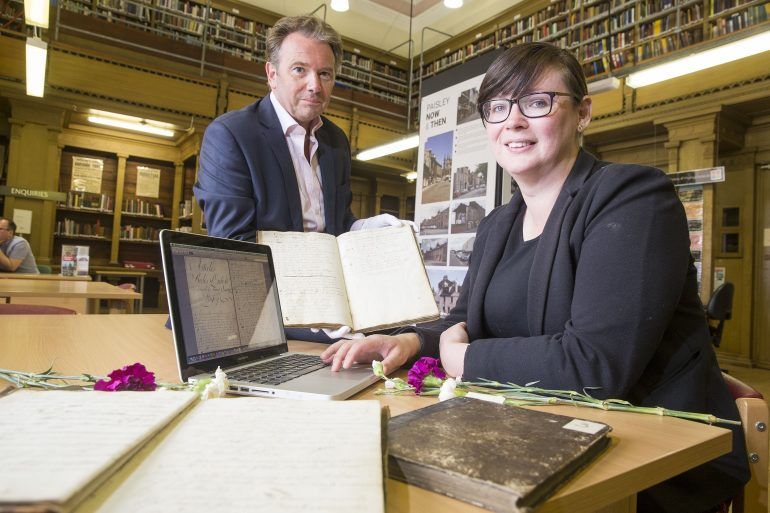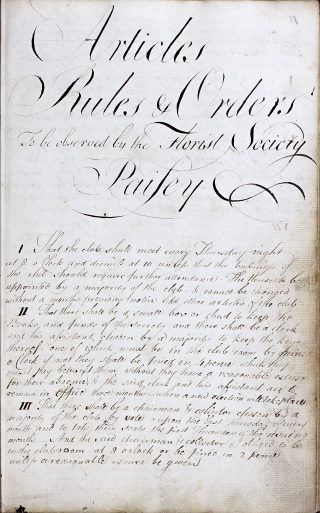In 1782, the weavers of Paisley founded a floral society – still known to gardeners and garden historians today.
In a handwritten book, the weavers set out the rules of their society – who can show flowers, when the shows will be held, how the judging will take place – the rules now familiar to fans of flower shows the world over.
The books include reference to Paisley’s own flower – the Paisley Pink.
The Paisley Florists Society was just one form of self-improvement that this skilled set of weavers pursued – as highly-paid men they had time for leisure and used it to develop interests in a wide range of topics, including natural history, ornithology, botany, entomology, poetry and music.
They formed many associations, book clubs and literary societies for both recreation and intellectual improvement.
The General Report of Scotland in 1814 observed ‘ the operatives of Paisley, taking them at large, exhibit a condition of improvement very rarely indeed, if at all, to be paralleled among persons in the same rank of life’.
Did their interest in flowers inspire their woven fabrics? At the time, writers noted that the weavers’ interest in flower growing naturally complemented their work in producing textiles with floral patterns. No direct link has yet been established.
“When the Paisley Florists’ Society was formed, the weavers were at the high point of their trade with stable employment and earnings. This income allowed them to have free time to spend on hobbies. Farm produce being sold in towns during the industrial revolution and the weavers spending power also meant they did not have to grow food in their gardens. This combination of factors meant they could grow flowers in the weavers’ cottage gardens and the Paisley Florists Society was born.”
David Weir, Heritage Co-ordinator for Renfrewshire Leisure
But now, by sharing these books more widely, hopefully we can explore that connection.
This is a very Paisley story – about the weavers who gave the town its global reputation for beautiful complex textiles and about those weavers’ desire for self-education and improvement in many fields.
This resource is known of but not widely shared with experts – digitisation allows us to share the minute book more widely and to understand its place both in Paisley’s story and the wider story of the global love affair with flowers and gardening.
The digitisation project was funded by Arts and Business Scotland and the work carried out by Paisley digital scanning and archiving specialist company, Abergower.
Using the link below, you can open and view the digitised book and minute book and discover this fascinating piece of social history:

